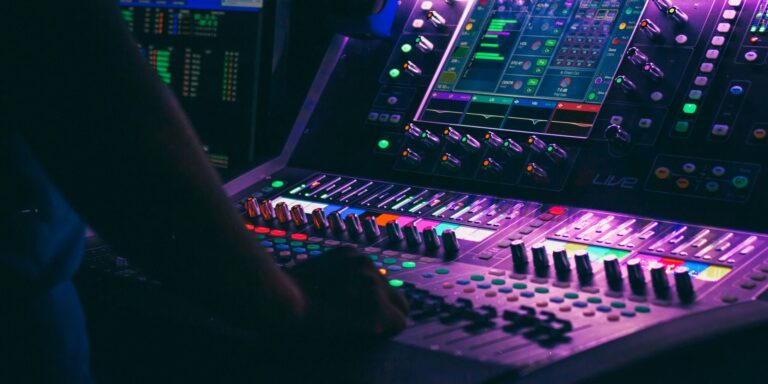The rise of AI-generated music is shaking up the traditional music production landscape. But is it a threat to creativity, or a tool for innovation?
Artificial Intelligence (AI) has rapidly transitioned from being a tool for tech companies to an indispensable asset for musicians, producers, and even entire record labels. From creating original compositions to mastering tracks in seconds, AI promises to change how we create and experience music. However, as this technology grows, a central question arises: will AI replace human creativity in the music industry, or can it coexist and push the boundaries of artistic expression?
The Promise of AI in Music Production
AI’s potential to revolutionize music production is already evident across several areas.
Efficiency and Speed
Traditionally, producing a track can take hours of meticulous work. AI promises to automate many aspects of production, such as mixing and mastering, allowing creators to focus more on the emotional and conceptual elements of their work. AI software can balance frequencies, adjust dynamics, and suggest improvements to compositions, enhancing the process and improving efficiency.
Creative Possibilities
AI’s ability to process vast amounts of data allows it to generate original compositions in any genre, create harmonies, and even simulate the style of specific artists. By learning from thousands of tracks, AI can provide musicians with new ideas and perspectives, encouraging them to experiment with fresh sounds and genres they may not have considered.
Accessibility for Aspiring Artists
AI tools are also democratizing music production. In the past, aspiring musicians needed access to expensive equipment and years of training to produce professional-sounding tracks. Now, with AI-driven apps, anyone with a computer or smartphone can create high-quality music. This opens the door for new voices and creativity that might have been previously overlooked in traditional production circles.
The Challenges of AI in Music Production
Despite its benefits, AI’s growing role in music production raises important questions about its impact on the industry and artistic integrity.
The Threat to Human Creativity
One of the most significant concerns surrounding AI is its potential to replace human creativity. Music is not just a technical process; it’s an emotional expression, deeply tied to the artist’s personal experiences. While AI can mimic patterns and structures, it cannot replicate the raw emotion and nuance that a human musician brings to a piece. AI may be able to produce technically perfect music, but can it capture the soul of the artist’s creation?
Job Displacement
AI-driven tools are also raising concerns about job loss in the music industry. Tasks like mixing, mastering, and even composing could be automated, potentially replacing jobs that musicians and producers rely on. In areas like advertising, film scoring, and gaming, AI-generated tracks are already being used, reducing the demand for human composers. This could be particularly harmful to smaller artists and independent producers who depend on their creativity for income.
Devaluation of Artistry
If AI becomes the norm for creating music, there is also a concern that music could lose its value as an art form. If algorithms are responsible for creating tracks, will listeners still appreciate the artistry behind the music? AI-generated songs could become just another commodity, devoid of the human touch that has made music such a powerful form of expression for centuries.
Can AI and Human Creativity Coexist?
Despite these concerns, there is optimism about AI’s role in music production. Rather than replacing human creativity, AI can be a valuable tool that enhances it. Much like how digital software revolutionized music production, AI can serve as an asset for creative collaboration.
Many artists are already integrating AI into their processes. Some musicians use AI to generate melodies or explore new rhythmic structures, which they then build upon with their own ideas. This hybrid approach can combine the best of both worlds – the precision and speed of AI with the emotional depth that only human creativity can provide.
Furthermore, as AI continues to evolve, it may become more adept at understanding and interpreting the emotional nuances of music. Imagine AI that not only analyzes data but also recognizes the mood and sentiment behind a song. Such technology could enhance a human artist’s work by producing sounds that align with their emotional vision.
Conclusion: The Future of Music Is Still in Our Hands
The future of music production is clearly changing, but whether AI is a friend or foe depends on how we choose to use it. While AI can enhance the music creation process, it is the human touch that makes music unforgettable. The best songs resonate because they reflect something deeply human – our emotions, experiences, and stories.
AI is a powerful tool, but it’s the creativity, imperfection, and emotion of human musicians that make music truly special. By embracing AI as a complementary tool, we can push the boundaries of what’s possible while preserving the emotional depth that makes music so impactful. The future of music may be shaped by technology, but its heart will always belong to the artist.


